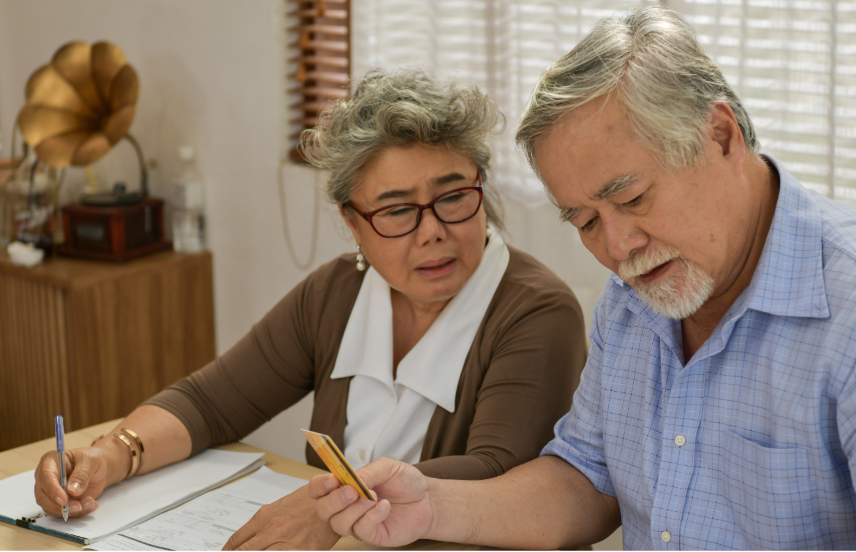
Does Bankruptcy Affect My Spouse
Bankruptcy could be a tough subject to address for married couples. Most times, your partner can have a lot of questions regarding how bankruptcy may impact both of your finances. This article will tell you the effect bankruptcy can have on you if your spouse files for it.
Your Debt is Solely Your Responsibility
Any personal or unsecured debts you owe are solely your responsibility if they are only in your name. When your spouse declares bankruptcy, the same rules apply. Any debt they might have racked up isn’t yours if it is not a joint debt. This misunderstanding may have emerged as a result of debt collectors telling people that if they don’t pay, they will obtain funds from their spouse. This is merely a fear technique employed by the collecting agents.
The Rule’s Exception

Shared Debt
There is one exception to this rule, and it’s critical that you grasp the difference between your personal debts and the ones you and your spouse share. It’s yours alone if your name is only involved with the debt. However, if your spouse co-signed a loan with you, the debts are jointly yours. Assuming you have one credit card linked to a joint bank account. Any debts you accumulate on that card are legally yours and your spouse’s.
While there are times when both of you are liable for the debt, there are occasions when just one of you is totally responsible, and the other is a guarantor. It all relies on the type of credit card arrangement you and your partner have with the bank.
Loan Consolidation
When one or the other in a couple is experiencing financial difficulties, couples may decide to consolidate their debts and arrange a combined consolidation loan to make it easier to pay. If you and your spouse agree to pursue a debt consolidation loan, you both become co-borrowers, and you are both entirely liable for repaying the loan. Things can become a little difficult at this point. If one of you files for bankruptcy but you both have a combined consolidation loan, the other will be held liable for the entire amount.
Separation or Divorce
Although your partner is not liable for your debts simply because you are married to them, the same concept is applicable in a divorce. However, if you and your spouse incurred shared debts while you were married, a divorce cannot legally exempt one of you from repaying that amount. You’ll need written permission from your lender if you wish one spouse to be released from the duty to repay joint debts. Regardless of what the divorce agreement states, if one of you files for bankruptcy, the other will be accountable for shared debts.
What If My Spouse Dies While In Bankruptcy?
What happens to a deceased spouse’s debt? You might be startled by the unpaid loans left behind by a loved one after they pass away. But are you in charge of them?
You can’t inherit debt in Canada, and it can’t be passed to you. Only if your spouse’s debt was jointly owned would you become liable for it. You are not accountable for paying back your spouse’s loans in the name of being married, except if you joined the account. If a spouse’s debt was held separately, credit card firms cannot chase you for it.
Credit card debt incurred after a spouse’s death, on the other hand, becomes part of the deceased’s estate. Before the assets in the estate are handed to the recipients of the deceased’s will, lenders would have a hold on it. While you are not accountable for a spouse’s debt after their death, it will be deducted from whatever inheritances are left behind.
If My Spouse Goes Bankrupt, Can I Be Held Responsible For His/Her Car Loan or Student Loan?
Debt can be introduced into a relationship in a variety of ways. Student loans and vehicle loans are some of the most prevalent, but they can include personal loans, mortgages, and lines of credit. Unless you legally merge the loans, which you can do using credit consolidation that you mutually sign up for, you are not accountable for any debts your spouse brings into the relationship.
Some couples resolve to work together to pay off their collective debt so that they can start their lives together. To buy a new house or start a family, some degree of combined financial cooperation may be required. It may not be enjoyable or easy to plan family finances, but both couples must understand and agree on what they’re accountable for and what should be kept separate.
Conclusion
One of the most typical questions couples have is how bankruptcy would affect their marriage if one decides to file a bankruptcy. It’s important to understand how debt, bankruptcy, income, and assets affect your finances and those of your spouse. At EmpireOne Credit, we can assist you with a free consultation in which we review your options and advise you on the best solution that would work for your current financial situation. You can also learn about debt management, consolidations, consumer proposals, and bankruptcy. We have a reputation for assisting our clients in resolving their financial issues and walking them through from the beginning to the end.

Book a free consultation with us today if you’re feeling overwhelmed and don’t know how bankruptcy could affect you or your spouse, or simply just to manage your debts. We’ll come up with a plan that works for you!





